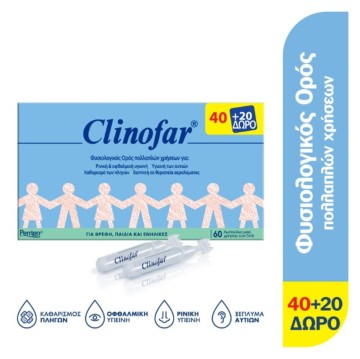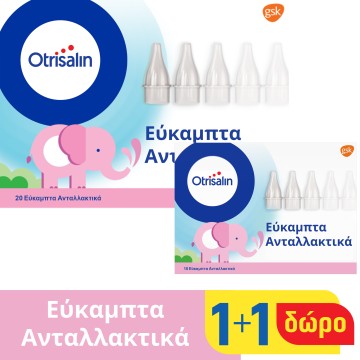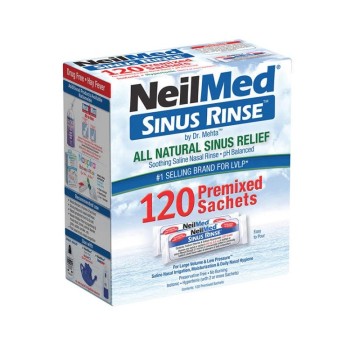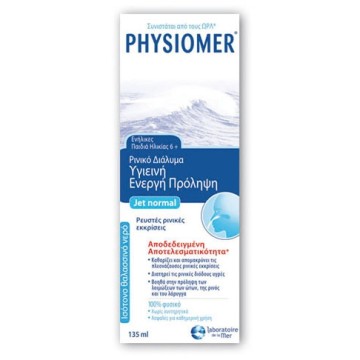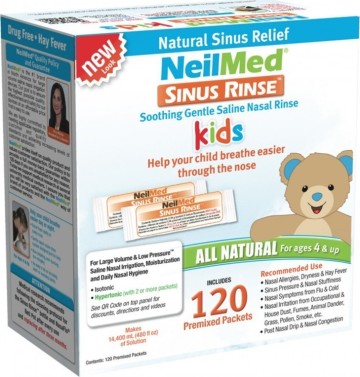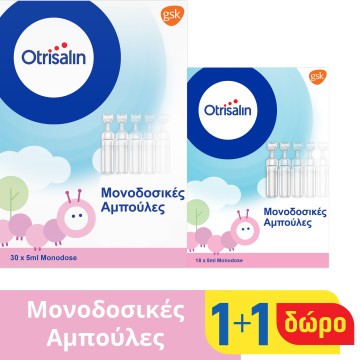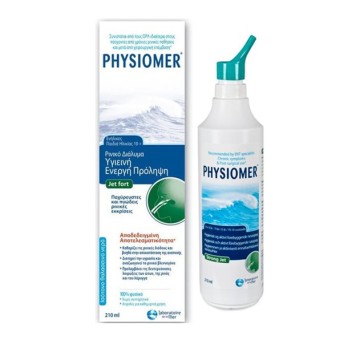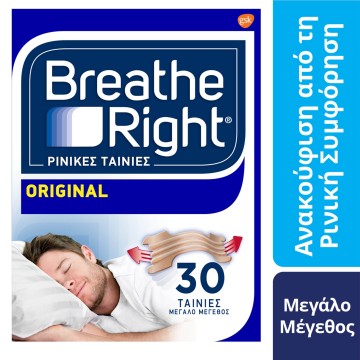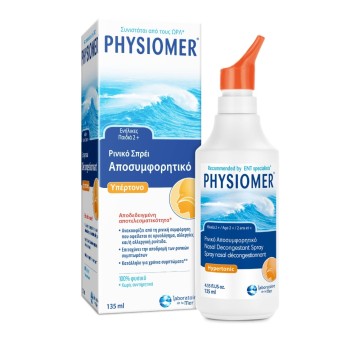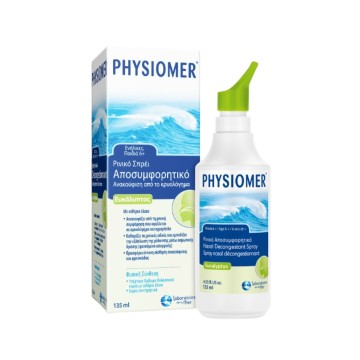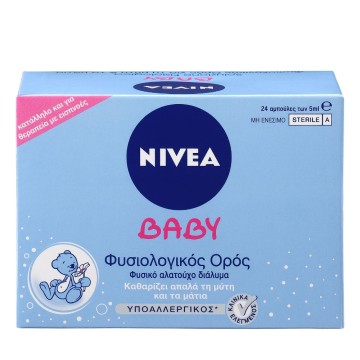What is sinusitis?
Η
sinusitis is an inflammation or swelling of the tissues in your sinuses (right and left of the nose). It causes some symptoms such as pain and pressure in the face, stuffy or runny nose and sometimes fever. It is usually caused by the common cold, but it can also be caused by some bacteria, viruses or fungi.
Igmoria
The
sinus they are closed cavities under the eyes that produce a thin mucus. This mucus goes into the nose to keep it clean and free of bacteria. If the bacteria don't leave there and stay in the sinuses, they cause inflammation, which we call
sinusitis.
Where are the sinuses located?
Overall there are
4 pairs of tricks in every man's skull. These are located:
- Above the eyes
- Between the eyes
- Behind the nose
- Behind your cheeks
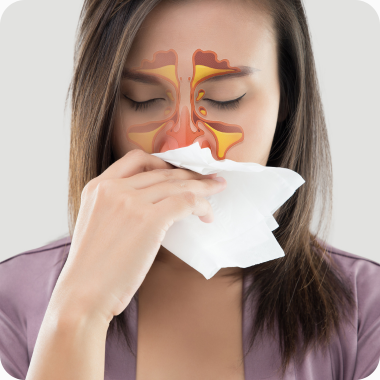
Types of sinusitis
Acute sinusitisIt is usually caused by the common cold. Her symptoms persist
less than 4 weeks although from the first 10 days you should feel better. It has the following symptoms:
- Stuffy nose or nasal congestion
- Thick yellow to green mucus
- Feeling of pressure in the face when bending over
- Headache or cough
Chronic sinusitisHer symptoms
chronic sinusitis they last at least
3 month and are similar to those of acute sinusitis. Main causes are usually bacteria, allergies and repeated respiratory infections.
Subacute sinusitisIn this genre
sinusitis symptoms persist
more than 4 weeks and
less than 3 months. In other words, it is something between the 2 types above with the same, even milder symptoms.
Recurrent sinusitisSymptoms of acute sinusitis recur
four or more times in one year and last less than two weeks at a time.
Who gets sinusitis?
Some people are more likely to develop
sinusitis from others. Risk factors include:
- Nasal allergies
- Asthma
- Polyps in the nose
- Smoking
- Weakened immune system
- Problems with the shape of their noses, such as a convex diaphragm or larger nasal cavities
Sinusitis symptoms
The common
sinusitis symptoms is:
- Runny nose with thick green or yellow mucus
- Clogged nose
- Postnasal drip (mucus coming up the back of the nose towards the throat
- Cough
- Pressure and pain in teeth
- Pressure and pain in the ears
- Bad breath
- Feeling of pressure in the face (around the nose, eyes, forehead)
- Headache
- Fatigue
- Fever
- Decreased sense of smell
- Alteration of taste
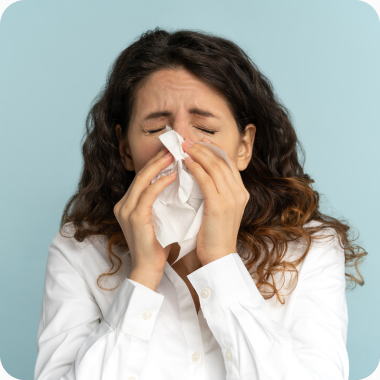
Causes of sinusitis
Η
sinusitis, can be caused by
bacteria, allergies, viruses, and fungi. These infections often start with something as common as:
- The common cold
- Nasal and seasonal allergies
- Bacteria (Streptococcus pneumoniae, Haemophilus influenzae, Moraxella catarrhalis)
- Polyps
- Diaphragm problem - scoliosis of the nasal septum
- Hypertrophy of the sinuses
- Infection in the teeth of the upper jaw.
- Weak immune system
- Abuse of drugs, antibiotics, nasal sprays
- Smoking
Is sinusitis contagious?
Η
sinusitis is not contagious. But the germs that cause it, such as viruses and bacteria, can be transmitted. That is why it is important to observe the correct hygiene measures
Diagnosis of sinusitis
To determine if you have a nose or throat problem, your doctor will ask about your symptoms and health history. Next, he examines your ears, nose, and throat, looking for inflammation or discharge. To get a better look inside the nose, they may use a small tool with a light called an endoscope.
If necessary, the doctor who sees you first may refer you to a specialist doctor for more tests, such as a
ENT, who specializes in ear, nose and throat problems.
Examinations for the diagnosis of sinusitis
- Introspection: A special tool to see inside your nose.
- Nasal sampling: Using a special soft-tipped stick, the doctor takes some fluid from your nose to test it for viruses or other microorganisms.
- Display: You may be given a CT scan to get a better look at the inside of your sinuses.
- Allergy test: If you have frequent sinus problems, the doctor can check if you have allergies that cause them.
Treatment of sinusitis
Many times, the
sinusitis it goes away on its own and may not need a specialist
treatment or some medicines. To prevent or treat mild cases, you can follow some simple tips.
What you should do depends on the cause and duration of the sinusitis. For example, if it is due to a bacterial infection, you may need antibiotics. If it was caused by a cold, maybe just painkillers and a little patience will suffice. But if it lasts more than 3 months, the condition is considered chronic and may require more specialized care. You can treat a sinus infection at home with:
- Decongestants
- Over-the-counter cold and allergy medications
- Nasal washes with saline

If after 10 days the symptoms of sinusitis do not improve, a doctor may prescribe:
- Antibiotics
- Local decongestants
- Prescription intranasal steroid sprays (Don't use these for more than three to five days because they may actually increase congestion.)
Η
treatment of chronic sinusitis may include:
- Topical antihistamine sprays or oral pills
- Intranasal steroid sprays
- Surgery to treat structural problems, polyps or fungal infections
Prevention of sinusitis
Depending on the cause, there are a few ways to help
prevention of sinusitis is covered, such as:
- Nasal irrigations with saline (salt water)
- You are using steroids nasal sprays if your doctor recommends them
- Take appropriate measures to prevent allergies (dust, pollen, smoke, animal dander, dust mites)
- Avoid contact with sick people, in closed spaces
- Wash your hands well and often with the appropriate ones disinfectant soaps
- Strengthen the immune system your system with the appropriate vitamins
Find on
wecare.gr the appropriate
decongestant products for relief from bloat
Related products:
Sources: 1. Sinus Infection (Sinusitis): Causes, Symptoms & Treatment,
2. Sinusitis,
3. What Is Sinusitis?,
4. Sinusitis (sinus infection),
5. Acute sinusitis,
6. Sinus Infection (Sinusitis),
7. Chronic sinusitis,
8.4 KINDS OF SINUSITIS AND THE TREATMENTS FOR EACH
PHARMACIST, M.Sc.
CEO Wecare IKE

















